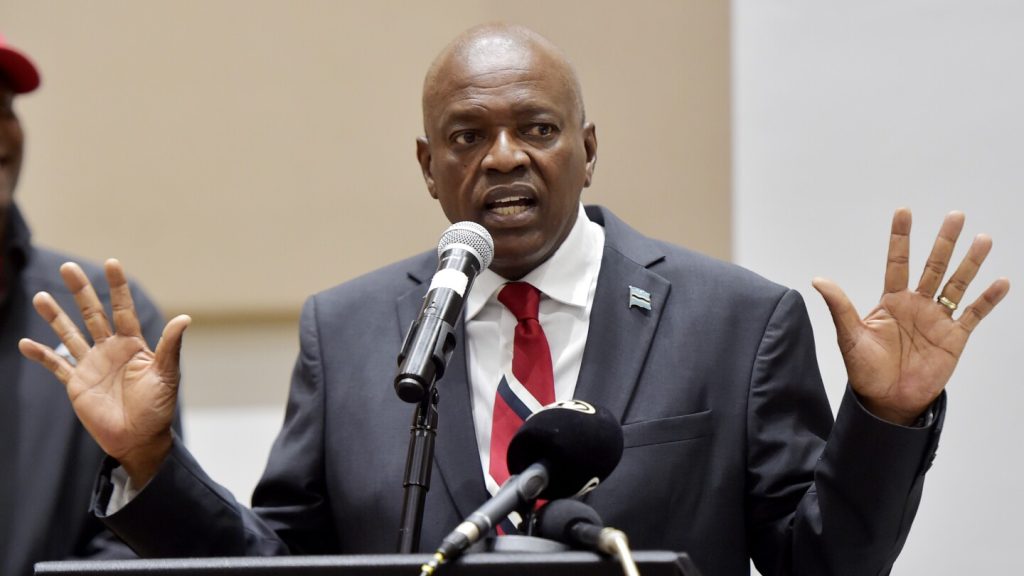In a historic election in Botswana, the opposition candidate Duma Boko’s party was declared the winner, ending the ruling Botswana Democratic Party’s 58 years in power since independence from Britain. The incumbent President Mokgweetsi Masisi conceded defeat even before the final results were announced, acknowledging a humbling rejection by voters. The Umbrella for Democratic Change party, led by Boko, won a majority of seats in the parliamentary elections, making him the next president of the country. This marked a seismic change in Botswana’s political landscape and the first time another party will govern the country since independence.
Masisi, who had dominated politics in Botswana for nearly six decades, gracefully accepted the election results, stating that he was proud of the democratic processes in the country. Despite his desire for a second term, Masisi vowed to participate in a smooth transition process and support his successor. Boko, a Harvard Law School graduate and seasoned politician, expressed his excitement for the future, sharing a message of “Botswana First” and emphasizing the need for change in the country. The peaceful transfer of power showcased Botswana’s commitment to democracy and political stability.
Botswana, known for its stable democracy and economic success, faced new challenges as the global demand for diamonds declined, impacting the nation’s economy heavily. Unemployment rates surged, especially among the youth, as the government struggled to diversify the economy beyond diamonds. Masisi and the BDP were criticized for not addressing these economic woes effectively, leading to a mood for change among voters. The election campaign focused on the need for policy changes and economic reforms to revive the country’s economy and reduce its dependence on diamond exports.
The significance of Botswana’s election resonated beyond its borders, as the BDP’s defeat mirrored other recent political shifts in Africa. The African National Congress in neighboring South Africa also lost its majority after 30 years in power, signaling a growing demand for change and new leadership across the continent. Botswana’s election outcome highlighted the power of democracy and the willingness of voters to embrace political transformation in pursuit of a better future. As the country navigates this new chapter in its democratic history, all eyes are on Boko and his administration to deliver on promises of change and progress.
The peaceful and democratic transition of power in Botswana garnered international attention and praise, cementing the country’s reputation as a beacon of democracy in Africa. With the incoming government facing tough economic challenges and high expectations from the electorate, the focus will be on implementing effective policies to spur economic growth and create opportunities for all citizens. As Botswana embarks on this new era under Boko’s leadership, the world watches closely to see how the country adapts to its changing economic landscape and sustains its commitment to democratic governance.


